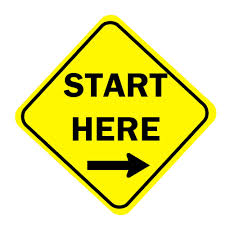 Commentary about the 2024 presidential election focuses a lot on the polarization in American politics. But what were the common themes, even between widely divergent extremes?
Commentary about the 2024 presidential election focuses a lot on the polarization in American politics. But what were the common themes, even between widely divergent extremes?
Michael J. Sandel’s synopsis of issues identifies two themes of discontent: the fear that, individually and collectively, we are losing control of the forces that govern our lives and the fear that the moral fabric of community is unraveling around us.[i]
What drives our shared sense of lost control and unraveling moral fabric? Pew Research noted that a majority say special interests dominate the political process, which is flooded with campaign cash and mired in partisan warfare. Elected officials are widely viewed as self-serving and ineffective.[ii]
- Members of Congress are widely seen as mixing financial interests with their work. About eight-in-ten Americans (81%) say members of Congress do a very or somewhat bad job of “keeping their personal financial interests separate from their work in Congress.”
- Americans feel major donors have too much influence. Large majorities say big campaign donors (80%) and lobbyists and special interests (73%) have too much influence on decisions made by members of Congress.
- Most say the cost of campaigns keeps good candidates from running. An overwhelming majority (85%) holds the view that “the cost of political campaigns makes it hard for good people to run for office.”
How do we address our shared sense of loss? The question is particularly difficult because behind any attempt to discuss policy or the assumptions behind policy are the deeply negative views of those on the other side of politics. If we cannot accept the humanity and good intentions of those who differ from us on how we define or address the problem, then the hope of constructive conversation evaporates. This was my experience in the pre-election, where my questions and concerns were rejected as invalid or worse.
So, are we at an impasse? Will we simply devolve into another oligarchy, or endure a long decaying democratic death spiral? Where does faith play a role in all this? Faith has found expression, though not always helpful because – I speak to Christian voices in particular – we cannot agree on a starting point.
What is the appropriate starting point? Here, Jewish scholar and rabbi Shai Held offers an interesting perspective in his discussion of the role of lament. He begins with a conviction that I find shared by all parties of the Christian social engagement.
Side by side with gratitude lives protest, a deep and unabashed conviction that the world as it is is a very far cry from the world as it should be, and a demand that the gap between them begin to be closed.[iii]
This conviction that the world and the US form of democracy are broken is the shared view. So, where does protest find its voice? The political protest we witnessed by Republicans and Democrats in this election cycle, each accusing the other of being the destroyers of democracy, is clearly ineffectual. Mutual accusation only feeds the fire of polarization.
What struck me in reading Held’s thoughts was that lament is a protest against the status quo. Using the events of the Exodus as a model, Held pointed out that the publicly processed pain of Israel’s suffering under Egyptian enslavement unleashed a new social imagination—declaring their situation to be intolerable and unsustainable planted the seeds of a different kind of society.
It seems we could agree to practice lament. Why start with lament rather than the more evangelical starting point of repentance? I am not sure we understand our role in our current situation. The mutual denigration engaged by the right about the left and vice versa suggests that we should start by expressing our fear, loss, and grief over the situation we find ourselves in. In lament, we can engage God in the unexpected ways God seems to show up historically. We can share lament and, in sharing lament, find the vulnerability and exposure before God we need to engage in repentance. Lament can plant the seeds of a different kind of faith community.
Held offers additional insight that seems pertinent to that part of the church I am most familiar. He writes:
If faith is about life – about real life, and not some spiritualized ideal thereof – then there has to be room for anguish. As long as life contains both joy and sadness, weal and woe, liturgy must continue both praise and lament. If all we are ever allowed to do is praise, then what do we do with our sorrows, our hurts, and our disappointments? If all we do with our pain is silence it, then we run the very real risk that our religion will depend on developing a “false self,” one that does not mean what it says and is afraid to say what it means. It’s vital that we grasp this point: being honest with God, even when life hurts, is not a rebellion against faith but a manifestation of it.[iv]
So, let’s be honest with God about our fears, our anxieties, our hurts. Let’s voice this lament and its inherent protest of the status quo together. Let’s see what God’s intervention looks like and be humble enough to accept the change deliverance invites us toward.
[i] Michael J. Sandel. (2022) Democracy’s Discontent: A New Edition for Our Perilous Times. Cambridge, MA: Belknap Press of Harvard University Press, 10.
[ii] Source: https://www.pewresearch.org/politics/2023/09/19/americans-dismal-views-of-the-nations-politics; Accessed 12 Dec 2024.
[iii] Shai Held. (2024) Judaism is About Love: Recovering the Heart of Jewish Life. New York: Farrar, Straus, and Giroux, 50.
[iv] Held, 68.
